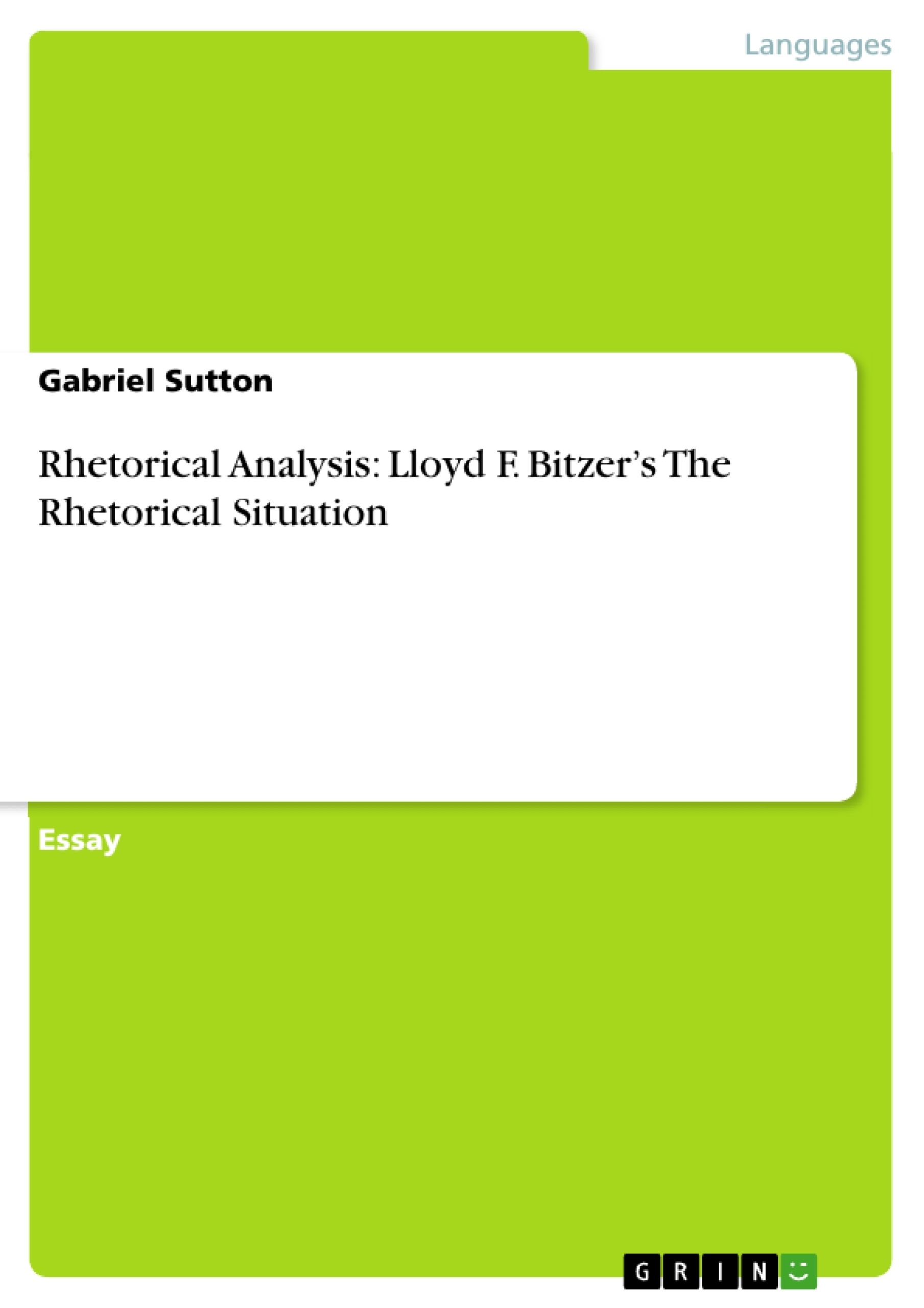In his 1969 academic thesis entitled The Rhetorical Situation, Professor Lloyd F. Bitzer examines the role that context plays in crafting effective discourse. This essay is an analysis of that thesis. Bitzer states that the rhetorical situation determines which rhetorical devices to use, the type of diction that is appropriate and the complexity of the discourse. He discusses the relationship between language and argument; language plays a primitive role, one that links human activity to the message. The essay ends by differentiating between rhetoric and the craft of persuasion.
Table of Contents
- Introduction
- The Rhetorical Situation
- The Nature of Rhetorical Discourse
- The Rhetorical Situation and Its Elements
- The Complexity of Rhetorical Situations
- The Lifespan of a Rhetorical Situation
- Conclusion
Objectives and Key Themes
This essay aims to revive the understanding of the rhetorical situation, providing a framework for analyzing how context influences effective discourse. Bitzer argues that the rhetorical situation dictates the choice of rhetorical devices, appropriate diction, and complexity of the discourse.
- The importance of context in crafting effective rhetoric
- The relationship between language and argument, where language serves as a link in human activity
- The concept of exigence as a driving force for rhetoric, highlighting the role of imperfection and urgency
- The identification of factors that compose a rhetorical situation, including controlling exigence, audience, and inhibiting factors
- The distinction between rhetoric and persuasion, emphasizing the philosophical importance of rhetoric as a practical discipline
Chapter Summaries
The essay starts by introducing the concept of the rhetorical situation and its significance in understanding rhetorical discourse. Bitzer emphasizes the importance of context by referencing influential rhetorical publications like the Declaration of Independence and Lincoln's Gettysburg Address, which are tailored to their respective situations. He explores the nature of rhetorical discourse, emphasizing the link between language and human action. The concept of exigence is introduced as a crucial element of the rhetorical situation, representing an imperfection demanding change and requiring discourse for its modification. This section also delves into the different factors that contribute to a rhetorical situation, including controlling exigence, the audience, and inhibiting factors.
The essay then moves on to discuss the varying levels of complexity in rhetorical situations, highlighting how the number of interacting elements affects the structure and style of discourse. It also explores the lifespan of a rhetorical situation, recognizing that situations can mature, decay, or persist indefinitely.
Finally, the essay concludes by reiterating the importance of incorporating context into discourse, emphasizing the unique value of rhetoric as a discipline that goes beyond the mere craft of persuasion.
Keywords
The main focus of this essay is on the rhetorical situation, its elements, and its impact on effective discourse. Key concepts include: rhetorical situation, context, exigence, controlling exigence, audience, inhibiting factors, rhetorical complexity, and the distinction between rhetoric and persuasion.
- Quote paper
- Gabriel Sutton (Author), 2010, Rhetorical Analysis: Lloyd F. Bitzer’s The Rhetorical Situation, Munich, GRIN Verlag, https://www.grin.com/document/209269




